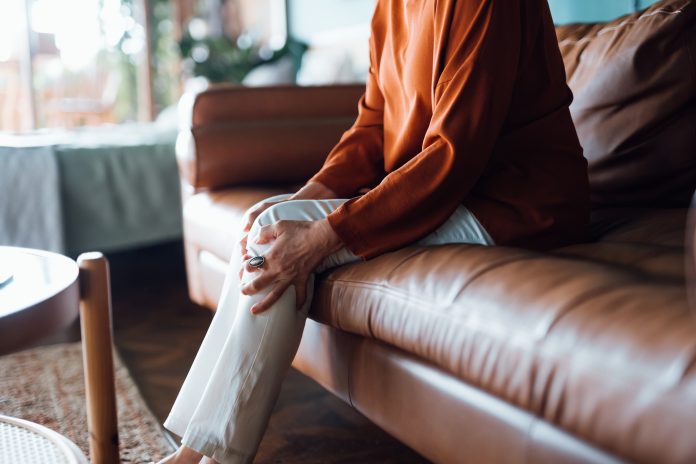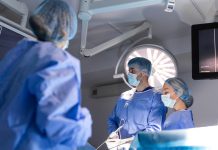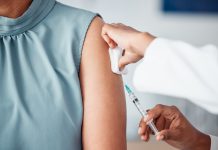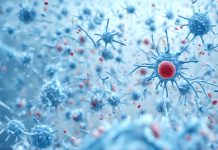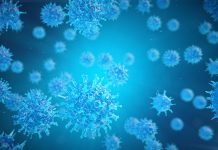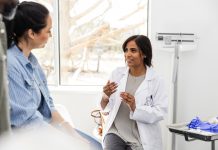A minimally invasive surgery combined with an autologous adipose stem cell transplant achieves a remarkable 88% cartilage regeneration rate
Dr. Shaw-Ruey Lyu of Dalin Tzu Chi Hospital’s Joint Center has achieved a significant milestone in regenerative medicine in Taiwan. This marks the first statistically significant, one-year follow-up report on knee osteoarthritis (OA) treatment outcomes since the implementation of Taiwan’s Special Regulations for Specific Medical Techniques, Examinations, and Equipment.
Over the past two years, Dr. Lyu has treated 78 patients suffering from knee OA with the Arthroscopic Cartilage Regeneration Facilitating Procedure (ACRFP) followed by autologous adipose stem cell therapy. His team’s cases account for 51% of all adipose stem cell cases for knee-related conditions in Taiwan, achieving an impressive 88% cartilage regeneration rate—a result that sets new benchmarks and validates Dr. Lyu’s long-held belief that cartilage can regenerate. This breakthrough brings new hope to Taiwan’s 3.5 million knee OA sufferers.
Breakthrough results in adipose stem cell therapy
According to data released by Taiwan’s Ministry of Health and Welfare, follow-up reports on adipose stem cell treatments for knee OA and cartilage defects show that patients experience a 60% reduction in pain index after an average follow-up of 217 days.
Dr. Lyu’s team goes further. Their treatment program includes comprehensive documentation of patient conditions, timelines, pain and function indices, as well as imaging and MRI data. This one-year follow-up analysis demonstrates:
– Statistically significant improvements in pain and functionality indices
– An 88% cartilage regeneration rate, far surpassing previous standards
This report represents Taiwan’s most extensive, complete, and robust clinical evidence in regenerative medicine for knee OA to date, with results exceeding international benchmarks.
Dr. Shih Chung-Liang, Director of Taiwan’s National Health Insurance Administration, remarked that the passage of the Special Regulations and the Regenerative Medicine Acts has established a solid foundation for Taiwan’s healthcare industry. He expressed optimism that such innovations will offer higher-quality care to patients in Taiwan and abroad.
Testimonial: Dr. Ho Mei-Hsiang
Dr. Ho Mei-Hsiang, a renowned epidemiologist and researcher at Academia Sinica, has contributed to Taiwan’s public health responses to COVID-19, Ebola, and SARS. However, she suffered from debilitating knee pain in recent years, consulting multiple physicians who concluded that her knees were beyond repair and recommended joint replacement surgery. Treatments offered merely alleviated pain without addressing the root cause.
Dr. Ho finally sought help from Dr. Lyu, who reassured her that her degenerated knees had a chance to recover. She underwent ACRFP followed by autologous adipose stem cell therapy.
Two months post-treatment, she hiked in Shikoku, Japan. A year later, she reports no pain during tennis, hiking, running, or strength training. Dr. Ho hopes her experience of “knee rebirth” will contribute to data supporting regenerative medicine and help make such treatments more widely available.
“Regeneration and degeneration are opposing forces in a tug-of-war,” she said. “In my case, regeneration has won an initial victory.” She is now free to explore various sports without limitations.
Testimonial: Dr. Liu Li-Jun
Another patient, Dr. Liu Li-Jun, who joined the press conference virtually, shared his gratitude for Dr. Lyu’s team in ending his 10 years of chronic knee pain.
Before treatment, Dr. Liu experienced pain while walking or getting out of a car and could only manage short distances of a few hundred meters. Despite living in tropical Pingtung, he had to wear thick socks due to poor blood circulation.
After undergoing ACRFP, Dr. Liu could walk 1–2 kilometers daily. Following adipose stem cell therapy, his mobility improved dramatically, allowing him to walk 5–10 kilometers and even hike Alishan trails with his family. The treatment enabled him to return to his work serving elderly patients in rural areas of Pingtung.
A paradigm shift in knee OA treatment
Traditional beliefs held that knee OA was a natural consequence of aging, and that cartilage could not regenerate. However, Dr. Lyu’s 30 years of clinical and foundational research have demonstrated otherwise. He has shown that knee OA is primarily caused by medial abrasion phenomenon from synovial fold (medial plica), which gradually wear down cartilage.
Dr. Lyu’s innovative Knee Health Promotion Option (KHPO) consists of three strategies tailored to patients’ disease stages. The second strategy, ACRFP, is particularly effective in promoting cartilage regeneration, relieving pain, and restoring mobility for patients in stages II and III knee OA.
“Through years of experience, we’ve found that ACRFP alone can achieve a 70% cartilage regeneration rate,” Dr. Lyu explained. “I’ve long anticipated that the integration of cell therapy would amplify ACRFP’s effectiveness, shortening cartilage regrowth time and boosting success rates. After more than 20 years of waiting, policy changes have finally allowed us to implement this combination, and the results speak for themselves—an 88% cartilage regeneration rate!”
The combination of ACRFP and autologous adipose stem cell transplantation represents a significant advancement in the treatment of knee OA. This innovative approach fosters cartilage regeneration, reduces pain, and improves functionality, offering hope to millions worldwide.

